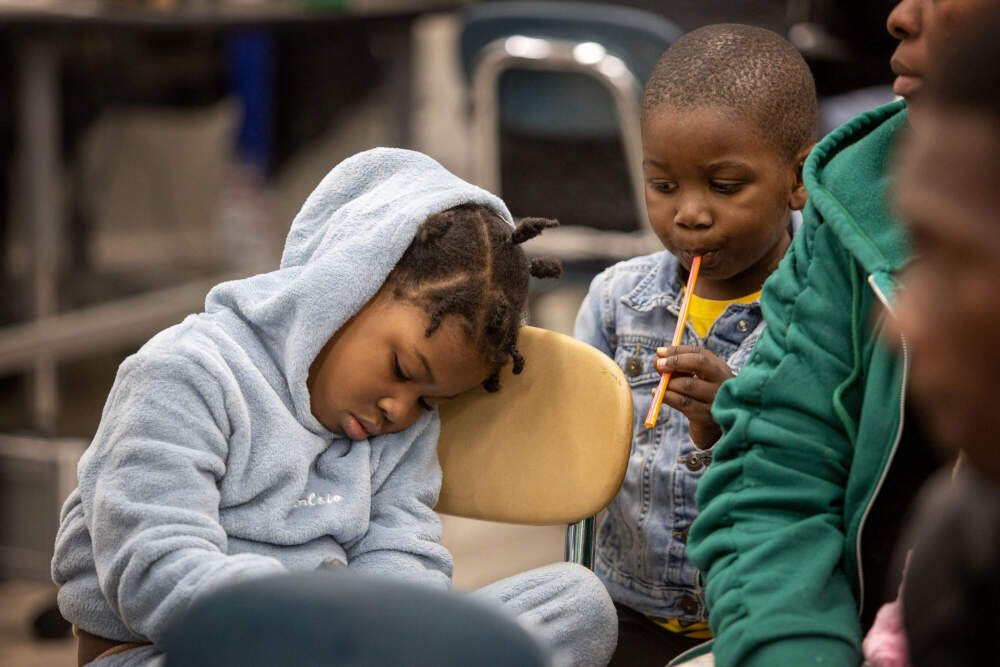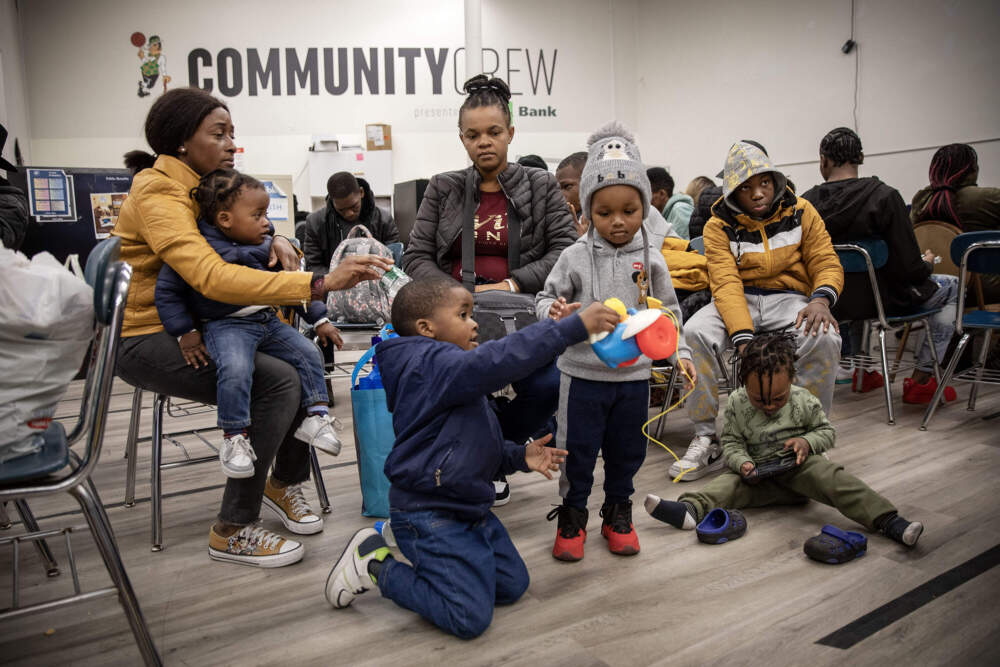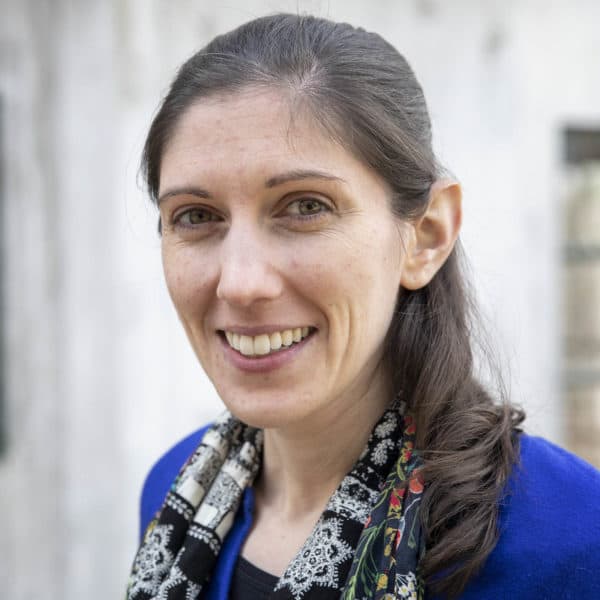Advertisement
Families struggle as Mass. shelter waitlist grows

It wasn’t the third birthday Jean Francois Secius wanted for his son, Richemene. Secius spent the day wondering where his small family would sleep that night.
He recently learned the Massachusetts family shelter system is full and, for the first time last week, the state started placing eligible families on a waitlist.
“I was very disappointed,” Secius said, speaking in Haitian Creole. He said he came to the U.S. with one simple goal: “To live like a human being.”
So far, he said, this is still just an aspiration.
The family spent several nights sleeping at Logan Airport before they were kicked out Wednesday and told they’d be sent to South Station, along with other homeless families who had been staying in the baggage claim area.
Late that night, a Haitian pastor arrived and helped coordinate motel rooms for one night. Beyond that, the future remained uncertain.
“I have no plan,” Secius said, adding that he feels like a migratory bird with nowhere to land.
In the week since the state implemented the shelter waitlist, more and more parents and children have found themselves in Secius’ predicament. The task of providing for them has largely fallen to community groups that were already stretched thin. These groups said they haven't found the support and resources they need. Often, they burn though their own emergency funds to pay for food, sleeping bags, cots and motel rooms for families.
“Community groups are scrambling,” said Kelly Turley, the associate director of the Massachusetts Coalition for the Homeless. “They're just not equipped to make up for what the state has been providing for 40 years.”
A unique 1983 right-to-shelter law obliges the state to provide shelter for eligible homeless families. But with a record number of households needing help, Gov. Maura Healey placed a cap on the shelter population and implemented a waitlist. She said the system is running out of money, space and shelter providers. As of Wednesday night, 63 families were on the shelter waitlist.
Legislators ended their formal session this week without voting for more funding for the shelter system. The impasse, in part, revolved around whether the state should be required to create a place where waitlisted families can stay until a shelter unit becomes available.
No place to wait
Without an overflow site, waitlisted families are left on their own to figure out where to sleep. Donna Mitria, the triage team manager at the nonprofit La Colaborativa, worked with one family of four that slept at Logan Airport for multiple nights before sleeping at one of the state’s family welcome centers.
“The family shared with us that there are multiple families there. They're all in one large room, and everyone is sleeping on the floor. There are no cots or blankets or anything,” Mitria recounted, saying her organization has been told the wait time for shelter is between three and six months.
“The trauma and the distress of the families that are locked out of the system is so incredible,” she said.
The family — which includes a 14-year-old and a 7-year-old — was told to leave the welcome center on Friday, according to Adam Hoole, a senior paralegal at Greater Boston Legal Services. The nonprofit represents the family.
“I'm trying to find anywhere that they can stay during the weekend because right now, the plan is for all four of them to sleep on the street,” he said, adding that the family has been in the same clothes for eight days, and the mom says they are struggling to find food.
“All she has is some pieces of bread that she's been breaking into little bits and giving her kids throughout the day because they're hungry,” he said.
"We knew this was coming and to not even have a concrete plan — at least one place to send these families — I think is a huge failure."
Donna Mitria
Hoole said he reached out to the state agency overseeing the shelter system and was told the family is in the lowest priority group on the waitlist.
“I'm really struggling to get anyone to pay attention to them,” he said.
The Executive Office of Health and Human Services, which oversees the family welcome centers, declined to comment. The centers generally do not provide overnight accommodations for families but do offer transportation to wherever the family wants to go within the state.
In a statement, the Executive Office of Housing and Livable Communities, which runs the shelter system, said, “We partnered with the United Way to establish a $5 million grant program for community organizations to set up temporary overnight shelter sites and that work is in-progress.”
Mitria, of La Colaborativa, said it didn’t need to be this way. She noted that Healey announced a state of emergency months ago and requested additional funding from lawmakers.
“We knew this was coming and to not even have a concrete plan — at least one place to send these families — I think is a huge failure,” she said.

State officials have debated who should be responsible for setting up overflow sites for waitlisted families. Healey has said the federal government should fund and stand up congregate spaces, since a large part of the demand for shelter comes from newly arrived migrant families, who often don't have work permits.
“We need urgent support from the federal government, which bears ultimate responsibility for this situation,” Healey said when announcing the waitlist.
Some lawmakers in the House think the state should set up places for waitlisted families to stay. They sought to tie supplemental funding for the shelter system to a requirement for these sites. But the Senate disagreed and proposed giving Healey more leeway. On Wednesday night, lawmakers failed to pass the supplemental funding bill which would have included $250 million for the shelter system.
The $5 million fund, administered by United Way, rolled out its application process this week and does not yet have any sites available. Homeless advocates are worried that funding is insufficient to meet the need, and that community groups are already overburdened.
Speaking on Radio Boston this week, Bob Giannino, the president and CEO of United Way, said his organization is asking faith groups and social service nonprofits how they can help.
“We’ve been talking to a lot of faith-based, community-based organizations in hopes that we can incrementally have many locations that can increase their capacity even ever so slightly to address the immediate needs of the crisis, while thinking about what it means to get additional safety net shelters set up,” he said.
On the ground
On Friday, Dieufort Fleurissaint’s phone was ringing incessantly.
The first call was from a family who said they were told to leave one of the state’s family welcome centers and had no idea where to go. Then came a call from a crying mother on a sidewalk in Boston, with a sick son and nowhere to turn.
Fleurissaint, a Haitian community leader and pastor, tried to piece together a plan. He was already trying to find shelter for 31 parents and children who didn’t have a place to sleep, including Secius’ family.

Fleurissaint was the pastor who swooped into Logan Airport on Wednesday night to help ensure families weren't sent to South Station. Into the wee hours of the morning, he worked to get the 31 people — which included 17 children, one as young as two months old — motel rooms. The nonprofit Immigrant Family Services Institute booked the rooms, which Fleurissaint said cost well over $1,000.
Fleurissaint said he called state officials for help and was told to send the families to a shelter intake office to confirm they're on the waitlist.
“The state doesn’t have a clear plan to help them out,” Fleurissaint said.
Geralde Gabeau, director of the Immigrant Family Services Institute, has been stockpiling sleeping bags and pleading with local faith groups to help. So far, she's unimpressed with the response.
“If I am upset, it is with churches because by now, I should have a long list of churches coming and saying, ‘How can I help?’ I don’t have that,” Gabeau said. “They are empty from Monday to Friday. It hurts me to see they are not stepping up.”
She said the number of families she’s trying to find shelter for grows every day.
Turley, of the Massachusetts Coalition for the Homeless, is expecting the need to “increase exponentially” in the coming weeks.
“We’ve never been in this situation before,” she said.
